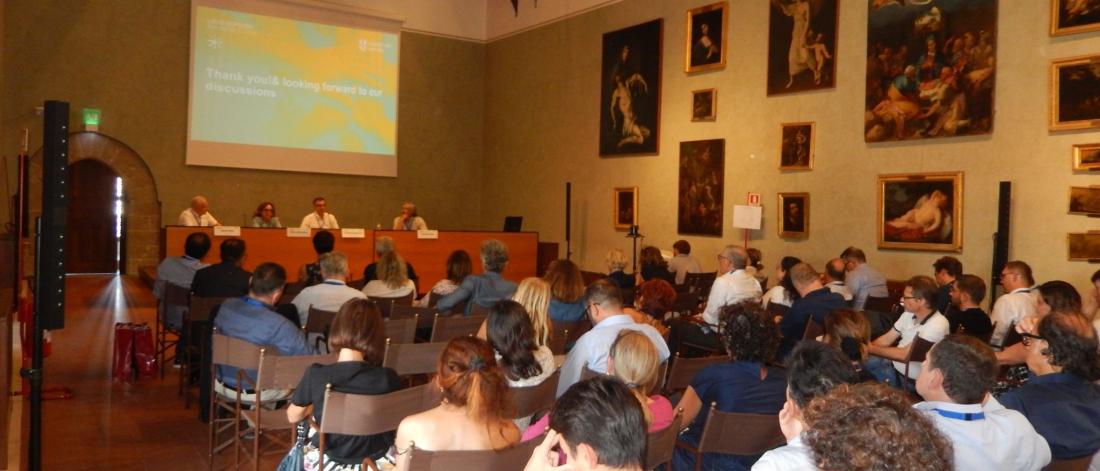Wolpertinger Annual Conference 2024 in Palemo, Italy
Rasha Alsakka, Professor of Banking and Finance at Business School, represented our School at the prestigious Wolpertinger Annual Conference 2024 in Palemo, Italy.
The Wolpertinger conference has been organised on by the Wolpertinger club since1987. This year, the conference hosted leading academics, practitioners, and policymakers, discussing topical theoretical and empirical research, policy issues and contemporary developments in banking and other related topics in the field of finance.
Rasha, who leads the Credit Risk research planning group within the Institute of European Finance (IEF) at Bangor, presented a new research paper titled ‘The Impact of Uncertainty on Monetary Policy Transmission -A Dynamic Structural Estimation of Heterogeneous Banks’, jointly authored with Dr Laurence Jones (Bangor University) and Dr Noemi Mantovan (University of Liverpool).
The Covid-19 pandemic, Brexit, the Ukraine-Russia conflict, and soaring inflation rates have hit the Eurozone countries’ banking sectors at a time when new regulatory reforms have changed the way they operate. These exogenous events have caused heightened uncertainty about the future direction of banking sector and the countries’ financial and macroeconomic conditions. The paper develops a novel dynamic structural estimation (DSE) to examine the impact of changing economic uncertainty on bank risk taking and lending behaviour and how it mediates monetary policy transmission. It focuses on banks in Eurozone countries over the period 2013 to 2023, which enables exploring the influence of the ECB’s negative interest rate policy NIRP (June 2014 – July 2021) as well as the most recent interest rate hikes.
A dynamic analysis is better suited for describing the behaviour of the complex banking systems as the banks’ dynamics and feedback loops are explicitly included within our model. The model allows to uncover the mechanisms that underpin banks’ responses to exogenous events during increased uncertainty. Hence, we can observe the consequences of numerous monetary policy shifts, applied simultaneously across multiple different EU countries, with varying economic conditions, by a single central bank. This study therefore is the first to discern how country-level macroeconomic conditions and heterogeneity influence monetary policy pass through.
The model is estimated, matching a host of moments from our dataset to ensure that the banks behave in a comparable fashion. Then, three sets of counterfactual simulations are conducted, and show:
- Increased uncertainty mitigates crisis impacts through banks’ reduced lending and higher capital and reserves.
- Conventional monetary tightening reduces bank lending while increasing profitability, whereas monetary policy loosening under the NIRP boosts lending through lower spreads.
- Policy tightening reduces lending during high uncertainty due to capital market effects, lower loan demand, and a weakened loan market power channel, while policy easing increases loan provision.
The study contributes new and important evidence on the monetary policy transmission by showing how banks macroeconomic expectations influence monetary policy transmission channels. Our results have important implications for policy makers, financial regulators, banking industry and central bankers.
The paper received very well in the Wolpertinger conference. Rasha’s participation has reflected well on Bangor Business School and contributed meaningfully to the body of research in this area.
Rasha and Laurance would like to thank the British Academy for their financial support.



